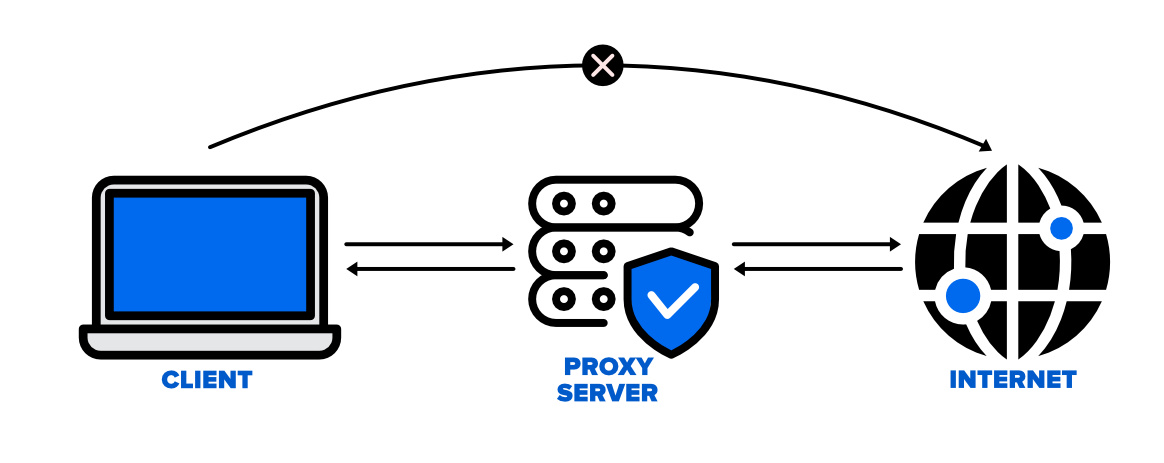How to Hide Your IP Address?
Last Updated :
28 Feb, 2023
Hiding an IP address means borrowing a different IP address to mask the original one and make the identity private. We can borrow different IP addresses and stay hidden. There are several reasons behind hiding IP Addresses. A few of them are given below:
- To bypass any filters, bans, checklists
- Hide the geographical identity
- To prevent any digital footprint
- Avoid web tracking
- Keep our physical address private
Use a VPN service :
VPN services are one of the best ways to hide IP addresses. We can choose from a variety of vendors available. To utilize its services, simply we can sign up, and we can show the virtual leased IP address to the web instead of the original one. That virtual IP will be provided on loan by the VPN provider.
There are many VPN companies to decide from:
- Hola VPN
- Nord VPN
- Orbot VPN
While we use VPN services, the data/ packets reach the destination with the virtual IP address assigned by our provider. So the traffic is tunneled and encrypted by the VPN provider through its server. VPN basically acts like a middleman between our device and ISP, so only the IP of the VPN is provided and not the device that is logged in. There is only one who can see our activity, it’s our VPN service provider itself.
Use Tor Browser:
Tor is just like another Browser (Chrome, Firefox, Edge) but it secretly hides our IP address and conceals our identity every time we go online. The data is layered with privacy and security, and thus it keeps us anonymous on digital footprint. The only disadvantage is the speed of the browser which comes at the cost of assuring privacy. In tor, traffic is encrypted by three relay nodes where every layer encrypts the identity and when it leaves the final node it is sent to the destination after decryption. Even when an attacker tries to interrupt any of the packets in the process, it will be difficult to parse the IP address since the sequence of nodes changes meantime, thereby ensuring safety. Tor’s encryption system takes a long time to complete the journey it comes at a performance cost of lower speed. While comparing VPN and Tor browser, it’s definitely VPN that should be more convenient and faster. Tor is associated with criminal activity in the dark net purposes. Also, it is not suitable for streaming. Also, some websites block Tor connections.
Use Proxy Server:
A proxy server handles internet traffic on our behalf. A proxy server sits in front of the client and forwards the requests. It also delivers and receives requests from servers. Websites and apps see the proxy IP address Proxy servers don’t encrypt the traffic unlike VPN, but they do hide the IP address. These proxies are SSL, SSH, or SOCKS proxies. They can be configured in our apps like a web browser or can be used like a third-party app. Proxies don’t include DNS, so the request may end up on a third-party, server that would be able to see our IP. Also, when the proxy server is not configured properly or when it is down, the IP address can be visible to the other users. Proxies don’t have authentication, so they are exposed to attacks, where man-in-the-middle is the most common one. Attackers themselves act as proxy servers that may steal the data. Only a few VPNs provide security by offering HTTPS (SSL) which protects the browsers, but other apps are still prone to attack. There are risks involved in using free proxies that mask our IP address. Some countries have made it illegal, while there are still risks of slowing down the internet connection.

Use Public Wi-Fi:
This is an effective way of hiding the IP address that comes with providing free Wi-Fi but at the cost of tempering security. While visiting public places like a coffee shops, railway stations, airports, or hotels, we can temporarily hide IP addresses while using the Wi-Fi of such places. As long as we are online, we would be using their IP address. The advantage comes at a security cost. While using public Wi-Fi, if we conduct any transaction or purchase online, it’s quite likely that the bank details or any other confidential data might be tempered. Public Wi-Fi networks are considered insecure ones where hackers and other cyber criminals are always searching for victims. There is a lack of authentication and encryption where the networks are available openly without WPS security.
Conclusion:
The best way to hide IP addresses is using a VPN which provides security, high bandwidth, and access to blocked websites and apps. VPN does effectively mask the IP address, but still, real IP is there that communicates with the server as an intermediary. While it is not possible to hide IP addresses from everyone, the methodology still provides an effective added layer of security to some extent.
Share your thoughts in the comments
Please Login to comment...